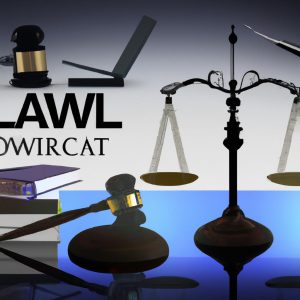In the complex world of estate administration, the role of an executor or administrator is crucial in ensuring the smooth transfer of assets and settling of debts. However, the question remains, who is eligible to take on this vital position? As experienced practitioners in the field of estate law, the team at Morgan Legal Group in New York City delves into the qualifications and requirements for appointing an executor or administrator of an estate. Join us as we unravel the complexities of this pivotal role and shed light on the intricacies of estate administration.
Eligibility criteria for appointing an executor or administrator
When it comes to appointing an executor or administrator of an estate, certain eligibility criteria must be met to ensure the proper administration of the deceased’s affairs. The following individuals are typically considered eligible for such roles:
- Family Members: Close family members such as spouses, children, siblings, or parents are often chosen to serve as executors or administrators.
- Legal Professionals: Attorneys or legal professionals with experience in estate planning and probate may also be appointed to handle the responsibilities.
- Trustworthy Individuals: Individuals who are trustworthy, reliable, and able to handle the complexities of estate administration can also be considered for the role.
| Name | Relationship | Reason for Eligibility |
|---|---|---|
| John Smith | Son | Close family member with knowledge of the deceased’s affairs. |
| Sarah Johnson | Attorney | Legal professional experienced in estate planning and probate. |
| Emily White | Friend | Trustworthy individual capable of handling estate administration tasks. |
Key considerations when selecting an executor or administrator
When selecting an executor or administrator for an estate, there are several key considerations to keep in mind. The individual appointed to this role will be responsible for carrying out the wishes outlined in the deceased’s will and ensuring that the estate is distributed according to the law. Here are some important factors to consider when choosing an executor or administrator:
- Trustworthiness: It is crucial to select someone who is trustworthy and reliable to oversee the administration of the estate.
- Financial knowledge: An executor or administrator should have a good understanding of financial matters in order to effectively manage the deceased’s assets and debts.
- Availability: The individual chosen should have the time and availability to fulfill their duties promptly and efficiently.
- Communication skills: Good communication skills are essential for an executor or administrator to effectively interact with beneficiaries, creditors, and other parties involved in the estate administration process.
Overall, selecting the right executor or administrator is a crucial decision that can greatly impact the smooth administration of an estate. It is important to carefully consider these key factors to ensure that the chosen individual is well-equipped to handle the responsibilities of the role.
Roles and Responsibilities of an Executor or Administrator: A Comprehensive Guide
When it comes to the administration of an estate, it is important to understand the roles and responsibilities of an executor or administrator. These two positions may seem similar, but there are key differences between them. An executor is named in the decedent’s will and is responsible for carrying out the wishes outlined in the will. On the other hand, an administrator is appointed by the court when there is no will or when the named executor is unable to serve. Both roles involve similar duties, including inventorying assets, paying debts, and distributing assets to beneficiaries.
However, not everyone can be appointed as an executor or administrator. Generally, individuals who are of legal age, mentally competent, and have no felony convictions are eligible for the position. Family members, close friends, or professional advisors are commonly chosen to serve in these roles. However, it is important to consider the complexity of the estate and the individual’s ability to fulfill their duties when selecting an executor or administrator.
Expert Recommendations for Choosing the Right Executor or Administrator
When choosing an executor or administrator for an estate, it is crucial to consider several factors to ensure that the individual appointed is capable of fulfilling their responsibilities effectively. Expert recommendations for selecting the right executor or administrator include:
- Trustworthiness: The chosen individual should be trustworthy and reliable to handle the estate’s affairs responsibly.
- Financial acumen: An executor or administrator with financial knowledge and experience can efficiently manage the estate’s assets and debts.
- Organizational skills: It is essential for the appointed individual to be organized and detail-oriented to effectively handle the various tasks involved in estate administration.
Furthermore, seeking professional advice from an estate planning attorney can help in selecting the most suitable executor or administrator for your estate. An experienced attorney can provide guidance on the legal requirements and responsibilities associated with estate administration, ensuring that the process runs smoothly and efficiently.
Q&A
Q: Who can be appointed as an executor or administrator of an estate?
A: An executor or administrator of an estate can be appointed based on a few different criteria.
Q: What qualifications are required to become an executor or administrator?
A: The qualifications for becoming an executor or administrator vary depending on the laws of the specific jurisdiction, but generally include being of legal age, mentally competent, and not having a conflict of interest.
Q: Can a family member be appointed as an executor or administrator?
A: Yes, family members are often appointed as executors or administrators of an estate, as they are usually familiar with the deceased’s wishes and assets.
Q: Are there any restrictions on who can be named as an executor or administrator?
A: There may be some restrictions on who can be named as an executor or administrator, such as having a criminal record or a history of financial mismanagement.
Q: Can a professional be hired to serve as an executor or administrator?
A: Yes, it is possible to hire a professional, such as a lawyer or a trust company, to serve as an executor or administrator if no suitable family member or friend is available to fulfill the role.
Q: What are the responsibilities of an executor or administrator?
A: The responsibilities of an executor or administrator include managing the deceased’s assets, paying debts and taxes, distributing assets to beneficiaries, and ensuring the terms of the will are carried out.
Key Takeaways
In conclusion, it is crucial to carefully consider who can be appointed as an executor or administrator of an estate. Whether it is a family member, friend, or professional, the chosen individual should possess trustworthiness, financial acumen, and organizational skills. Seeking professional advice can also help in selecting the right executor or administrator for your estate. By understanding the roles and responsibilities of these positions, you can ensure that the estate administration process runs smoothly and efficiently.Where to Keep Your Will in New York: Finding the Best Place to Store Your Important Document
When it comes to creating a will, one of the most important decisions you will make is where to keep it. After all, this document outlines your final wishes and ensures that your assets are distributed according to your desires. Therefore, it is crucial to keep your will in a safe and secure location.
But with so many options available, where is the safest place to keep your will in New York? In this article, we will explore the different options and provide guidance on finding the best place to store your will.
- A Trusted Family Member or Close Friend
One of the most common choices for storing a will is with a trusted family member or close friend. This person is often someone who is familiar with your wishes and can easily access the document when needed. However, it is important to choose someone who is responsible and organized, as they will be responsible for carrying out your final wishes.
- A Professional
Another option is to store your will with a professional, such as an attorney or financial advisor. These individuals are trained in handling legal documents and can ensure that your will is kept safe and secure. They may also offer additional services, such as regularly reviewing and updating your will as needed.
- A Safe Deposit Box
Many people choose to store their will in a safe deposit box at a bank. This option provides a high level of security, as the box can only be accessed by the owner or authorized individuals. However, it is important to note that safe deposit boxes may not be accessible after the owner’s death, so it is crucial to have a plan in place for someone to access the box and retrieve the will.
- A Fireproof Safe at Home
For those who prefer to keep their will at home, a fireproof safe is a good option. This provides protection against potential disasters, such as fires or floods. However, it is important to ensure that the safe is securely locked and that someone else knows the combination or has access to the key.
- A Digital Storage Service
In today’s digital age, many people choose to store important documents, including wills, in a digital storage service. This option allows for easy access and ensures that the document is protected from physical damage. However, it is important to choose a reputable and secure service, as well as to provide access to the document to a trusted individual.
In Conclusion
When deciding where to keep your will in New York, it is important to consider the level of security, accessibility, and reliability of the chosen location. It is also crucial to communicate your decision to the chosen individual and ensure that they have the necessary information and access to the document. By carefully considering your options and choosing a safe and secure location, you can have peace of mind knowing that your final wishes will be carried out according to your desires.
 Who Can Be Appointed as an Executor or Administrator of an Estate?
Who Can Be Appointed as an Executor or Administrator of an Estate?
The passing of a loved one is a difficult and emotional time for everyone involved. In addition to the emotional turmoil, there are also legal and practical matters that need to be addressed, such as the distribution of the deceased’s assets. This responsibility usually falls on the shoulders of an executor or administrator of the estate. But who can be appointed for this crucial role?
In this article, we will delve into the various options and requirements for appointing an executor or administrator of an estate, their roles and responsibilities, and why it is crucial to choose the right person.
What is an Executor or Administrator?
An executor or administrator is a person responsible for managing the distribution of a deceased person’s assets. They are appointed by the court or named in the deceased’s will. The role of an executor or administrator is to ensure that the deceased’s last wishes are fulfilled and that their assets are distributed according to their wishes or state laws.
Who Can Be Appointed as an Executor of an Estate?
1. A Family Member or Friend
In most cases, a family member or a close friend is chosen to be the executor or administrator of an estate. This is because they are familiar with the deceased’s wishes and preferences and are likely to carry out their duties with care and commitment. However, it is crucial to choose someone who is trustworthy, reliable, and financially responsible.
2. A Professional Executor
A professional executor is someone who is not related to the deceased but is appointed to manage the estate. They can be a lawyer, accountant, or a professional trustee. This option is suitable for complex estates or if there are potential conflicts among family members. However, it is essential to keep in mind that a professional executor will charge a fee for their services, which will be deducted from the estate’s assets.
3. A Bank or Trust Company
Some individuals may choose to appoint a bank or trust company to handle their estate. Similar to a professional executor, a bank or trust company will charge a fee for their services. They will also have the expertise and resources to manage complex estates effectively.
Who Can Be Appointed as an Administrator of an Estate?
If the deceased did not have a will or did not name an executor, the court will appoint an administrator to manage the estate. An administrator is typically a family member or a close friend of the deceased. However, if there are no suitable candidates, the court may appoint someone from outside the family, such as a professional administrator or a trust company.
The Probate Process
The probate process is the legal process of administering an estate. It involves determining the validity of the will, gathering the assets of the deceased, paying debts and taxes, and distributing the remaining assets to the beneficiaries. The executor or administrator will be responsible for completing this process and must follow the specific legal guidelines and deadlines.
Roles and Responsibilities of an Executor or Administrator
1. Obtain Death Certificate and Locate the Will
The first step for an executor or administrator is to obtain the certified death certificate and locate the deceased’s will. The death certificate will be needed for various legal and financial transactions, and the will is necessary to determine the deceased’s last wishes.
2. Notify Creditors and Beneficiaries
The executor or administrator is responsible for notifying creditors and beneficiaries of the deceased’s passing. This includes banks, credit card companies, utility companies, and any other parties who may have outstanding claims or debts. They will also have to notify all the beneficiaries mentioned in the will.
3. Manage the Estate Assets
The executor or administrator is responsible for managing the deceased’s assets until the probate process is completed. They must ensure that all assets are secure and maintain proper records of all transactions, including income, expenses, and distributions.
4. Pay Debts and Taxes
Before distributing the remaining assets to the beneficiaries, the executor or administrator must pay off any debts or taxes owed by the deceased. This includes filing the final income tax return and paying any estate taxes.
5. Distribute the Assets
Once all debts and taxes have been paid, the executor or administrator can distribute the remaining assets to the beneficiaries according to the deceased’s wishes. They must follow the instructions outlined in the will or state laws to ensure a fair and legal distribution.
Why is It Important to Choose the Right Person?
The role of an executor or administrator is not an easy one. It requires a significant amount of time, effort, and responsibility. Therefore, it is crucial to choose someone who is capable, trustworthy, and willing to take on this role. A wrong choice can lead to conflicts among family members, delays in the probate process, and potential legal issues.
Tips for Choosing an Executor or Administrator
1. Someone You Trust
Choose someone you trust and who knows your wishes and values. This will ensure that your assets are managed and distributed according to your wishes.
2. Organized and Detail-Oriented
An executor or administrator must be organized and detail-oriented to manage the finances and legal aspects of your estate.
3. Willingness and Availability
Choose someone who is willing to take on this responsibility and has the time and availability to handle the duties effectively.
4. Financially Responsible
The executor or administrator must be financially responsible and have a good understanding of managing finances.
Conclusion
The role of an executor or administrator is essential in managing and distributing a deceased person’s assets. It is crucial to choose the right person for this role, considering their trustworthiness, availability, and financial responsibility. If you do not have a relative or friend who fits these qualifications, consider appointing a professional executor or administrator to handle the process. This will ensure a smooth and efficient probate process and bring peace of mind to your loved ones during a difficult time.







